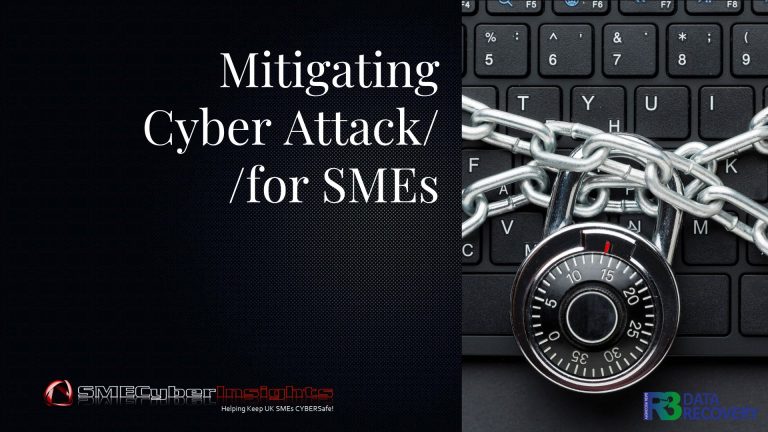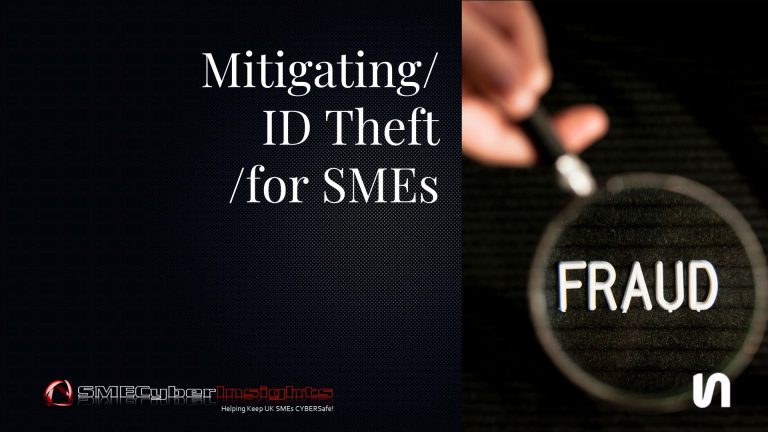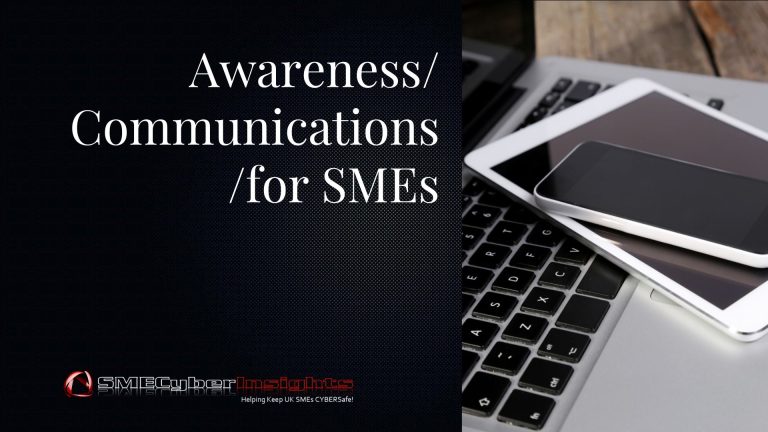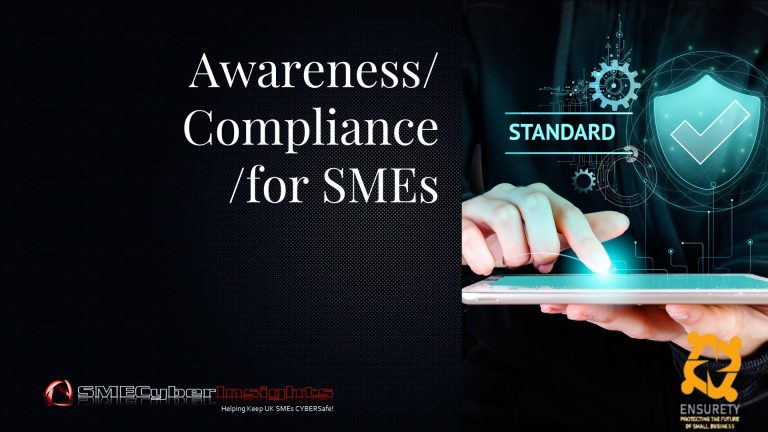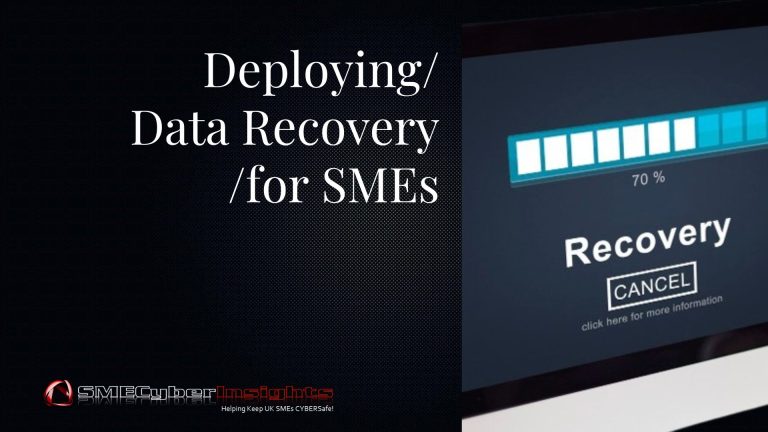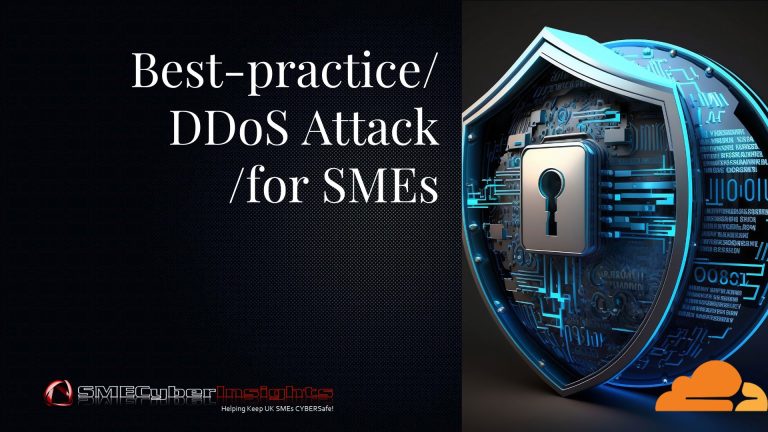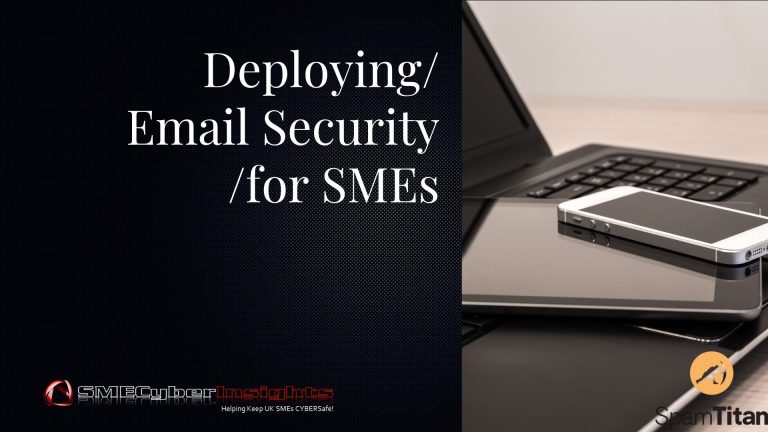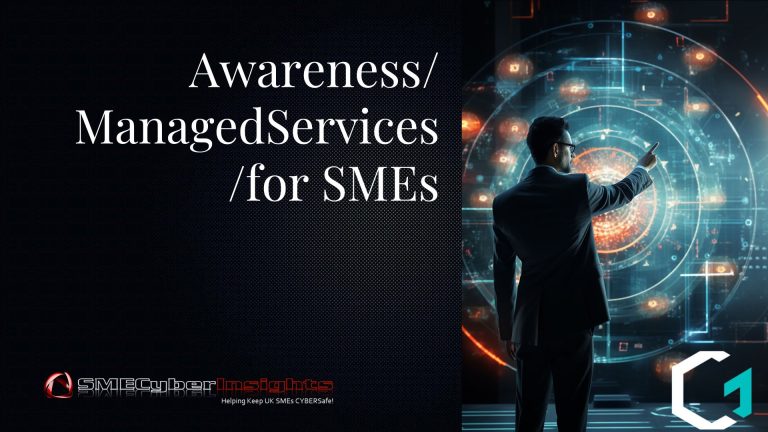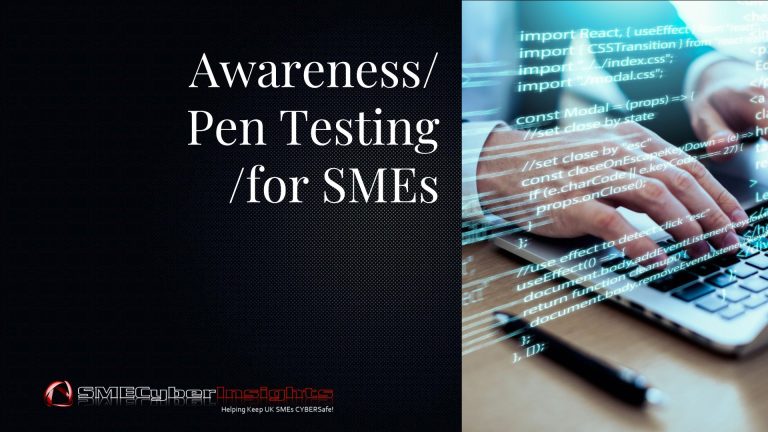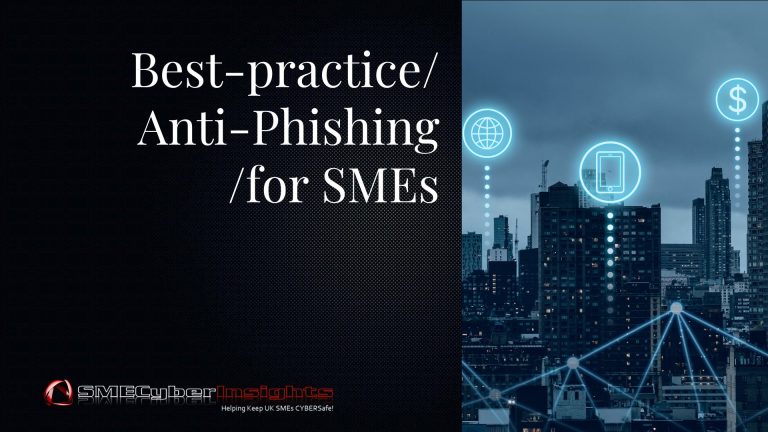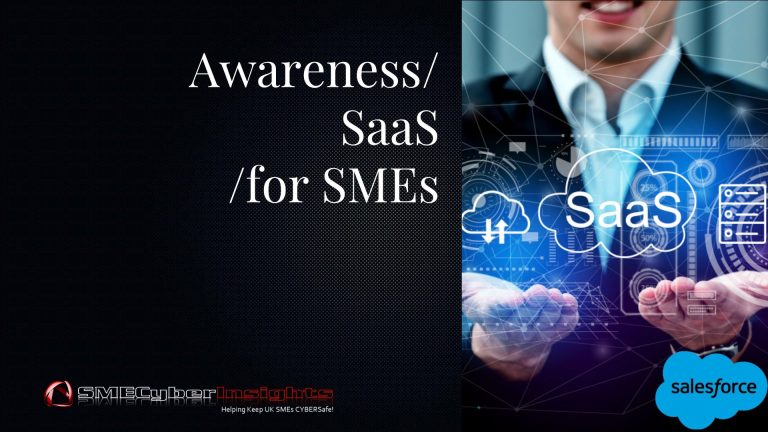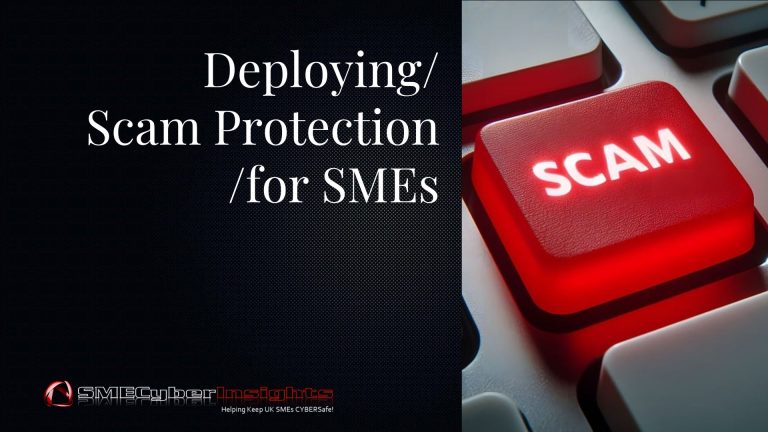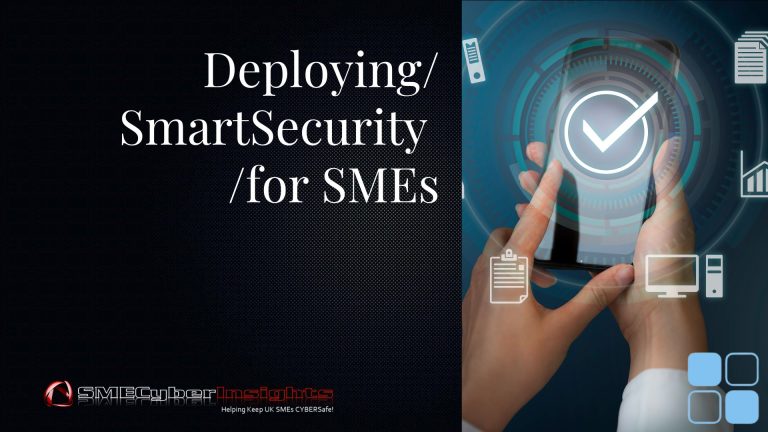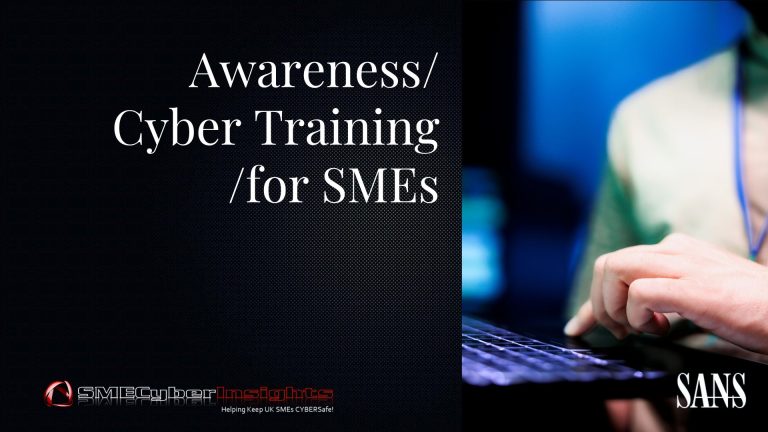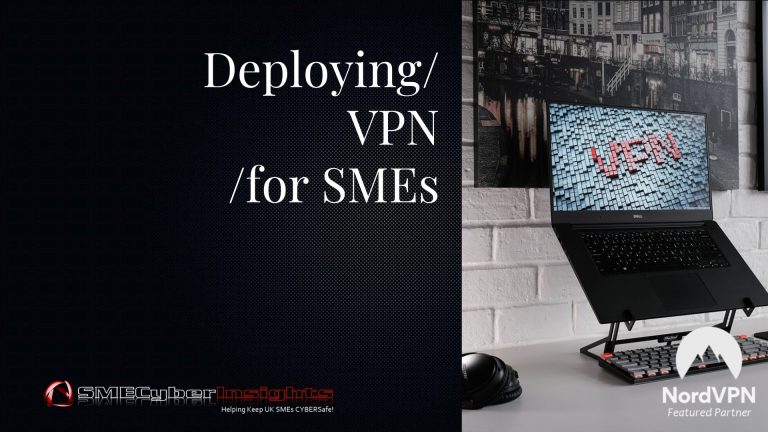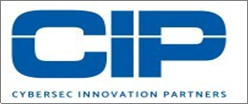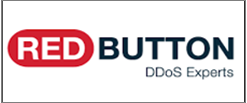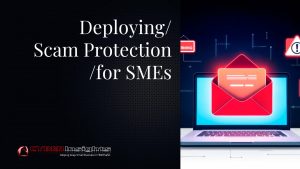KPI: Supply Chain Cybersecurity for UK SMEs: Essential Protection Guide 2025
June 5, 2025
SUPPLY CHAIN CYBERSECURITY FOR UK SMEs: Essential Protection Guide 2025 – CyberKPI: How UK SMEs Can Secure Their Supply Chain – UK Small & Medium Enterprises face critical Cyber risks through supplier connections, with 61% experiencing attacks in 2024 and supply chain compromises accounting for 40% of incidents. SMEs can protect themselves by conducting supplier risk assessments, implementing contractual security requirements, deploying network segmentation, and establishing continuous monitoring with incident response procedures. Essential measures include mandatory multi-factor authentication for suppliers, regular security updates, data encryption, role-based access controls, and compliance with UK GDPR and Cyber Essentials standards.
What is Supply Chain Cybersecurity?
Supply Chain Cybersecurity refers to the protection of interconnected networks, systems, and data shared between businesses and their suppliers, vendors, and partners. For UK SMEs, this means securing not just your own digital infrastructure, but also ensuring that every third-party connection doesn’t become a gateway for Cybercriminals to access your business.
The Critical Risk to UK SMEs
UK Small & Medium Enterprises face unprecedented Supply Chain Cyber risks that could devastate their operations within hours. Unlike large corporations with dedicated security teams, SMEs often lack the resources to thoroughly vet every supplier’s Cybersecurity posture, creating vulnerable entry points that hackers actively exploit.
Recent statistics show that 61% of UK SMEs experienced at least one Cyber attack in 2024, with Supply Chain compromises accounting for nearly 40% of these incidents. When a supplier’s systems are breached, Cybercriminals can pivot through shared networks, access customer data, steal intellectual property, or deploy ransomware across multiple connected businesses simultaneously.
The financial impact extends far beyond immediate losses. SMEs typically face average recovery costs of £35,000 per Supply Chain incident, plus potential regulatory fines under UK GDPR, loss of customer trust, and business disruption that can last weeks or months.
How UK SMEs Can Secure Their Supply Chain
1. Conduct Supplier Risk Assessments
Implement a structured evaluation process for all suppliers handling your data or connecting to your systems. Request evidence of their Cybersecurity certifications, incident response procedures, and data protection policies. Prioritize suppliers with Cyber Essentials certification or equivalent security frameworks.
2. Establish Contractual Security Requirements
Include specific Cybersecurity clauses in supplier contracts that mandate minimum security standards, regular security updates, breach notification timelines, and liability arrangements. Ensure contracts clearly define data handling responsibilities and compliance requirements under UK data protection laws.
3. Implement Network Segmentation
Separate supplier access from your core business systems using network segmentation and zero-trust principles. Create dedicated network zones for third-party connections with restricted access permissions and enhanced monitoring capabilities.
4. Deploy Continuous Monitoring
Install security monitoring tools that track supplier connections and detect unusual activity patterns. Automated threat detection systems can identify potential compromises before they spread throughout your Supply Chain network.
5. Develop Incident Response Procedures
Create specific response protocols for Supply Chain security incidents, including communication procedures with affected suppliers, customer notification processes, and coordination with relevant authorities such as the National Cyber Security Centre (NCSC).
Essential Supply Chain Security Measures
Multi-Factor Authentication (MFA): Require all suppliers with system access to implement MFA across their organizations and for any connections to your systems.
Regular Security Updates: Establish procedures ensuring suppliers maintain current security patches and software updates, with verification processes to confirm compliance.
Data Encryption: Mandate end-to-end encryption for all data shared with suppliers, both in transit and at rest, using industry-standard encryption protocols.
Access Controls: Implement role-based access controls that limit supplier access to only necessary systems and data, with regular access reviews and updates.
Security Training: Provide Cybersecurity awareness training to staff who manage supplier relationships and ensure suppliers demonstrate equivalent training for their personnel.
Regulatory Compliance and Standards
UK SMEs must ensure Supply Chain partners comply with relevant regulations including UK GDPR, the Network and Information Systems (NIS) Regulations, and industry-specific requirements. Consider implementing frameworks such as ISO 27001 or NIST Cybersecurity Framework to establish consistent security standards across your Supply Chain.
The UK government’s Cyber Essentials scheme provides an excellent baseline for supplier security requirements, while the NCSC‘s Supply Chain security guidance offers detailed implementation recommendations specifically tailored for UK businesses.
Warning Signs of Supply Chain Compromise
Monitor for these indicators of potential Supply Chain security incidents: unexpected system performance changes, unusual network traffic patterns, unauthorized access attempts, supplier-reported security incidents, and customer complaints about suspicious communications apparently from your organization.
Early detection enables rapid response and can significantly reduce the impact of Supply Chain attacks on your business operations and reputation.
Building Long-Term Supply Chain Resilience
Successful Supply Chain Cybersecurity requires ongoing commitment rather than one-time implementation. Regularly review and update supplier security requirements, conduct periodic security assessments, maintain incident response capabilities, and stay informed about emerging threats targeting UK SMEs.
Consider joining industry information-sharing groups and maintaining relationships with Cybersecurity professionals who understand the unique challenges facing SMEs in today’s interconnected digital economy.
UK Small Business Owner? Join SMECyber Free Now! & Access the SME Cyber Forum – Read, Learn, Engage, Share …
The Latest SME Cybersecurity News, Threat Intelligence & Analysis, Timely Scam Alerts, Best-practice Compliance, Mitigation & Resources specifically curated for UK Based SMEs in a Single Weekly Email direct to your Inbox or Smart Device together with Unrestricted Free Access to our entire SME Cyber Knowledge & Tutorial Library.

What is a VPN & Does my SME Need one? A VPN is a Virtual Private Network a method of securing your communications credentials. When it comes to Small and Medium-sized enterprises (SMEs), the choice of VPNs can significantly impact the security and efficiency of their operations.
The NordVPN service allows you to connect to 5600+ servers in 60+ countries. It secures your Internet data with military-grade encryption, ensures your web activity remains private and helps bypass geographic content restrictions online. Join NordVPN Today and Save up to 73% and Get 3 months Extra Free – Rude Not to …!

